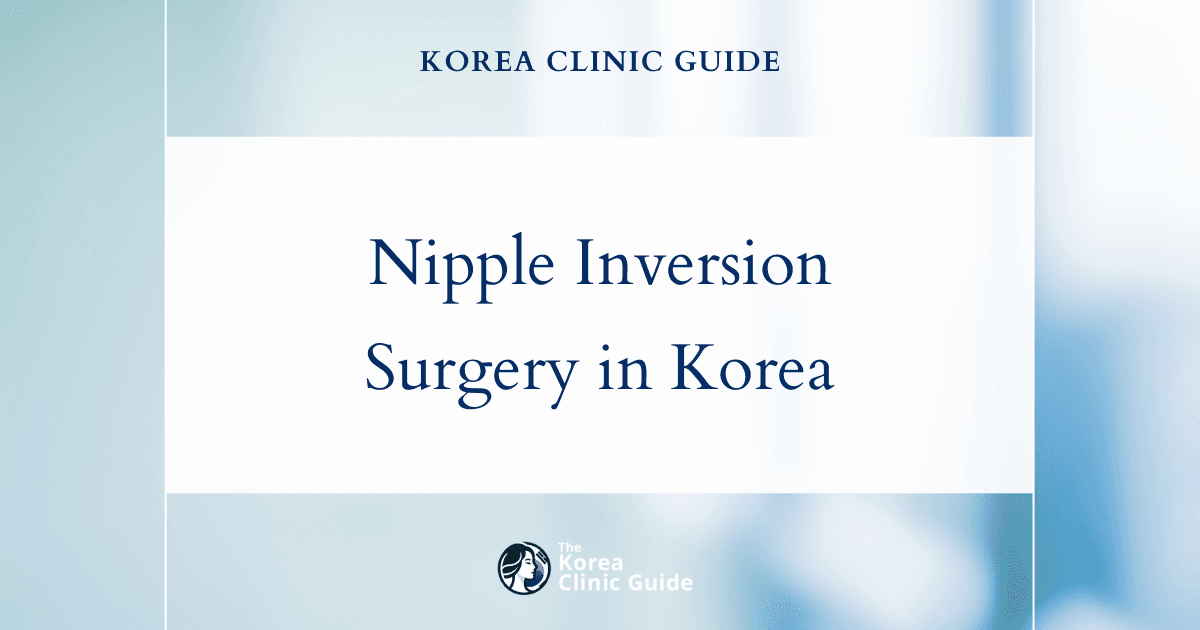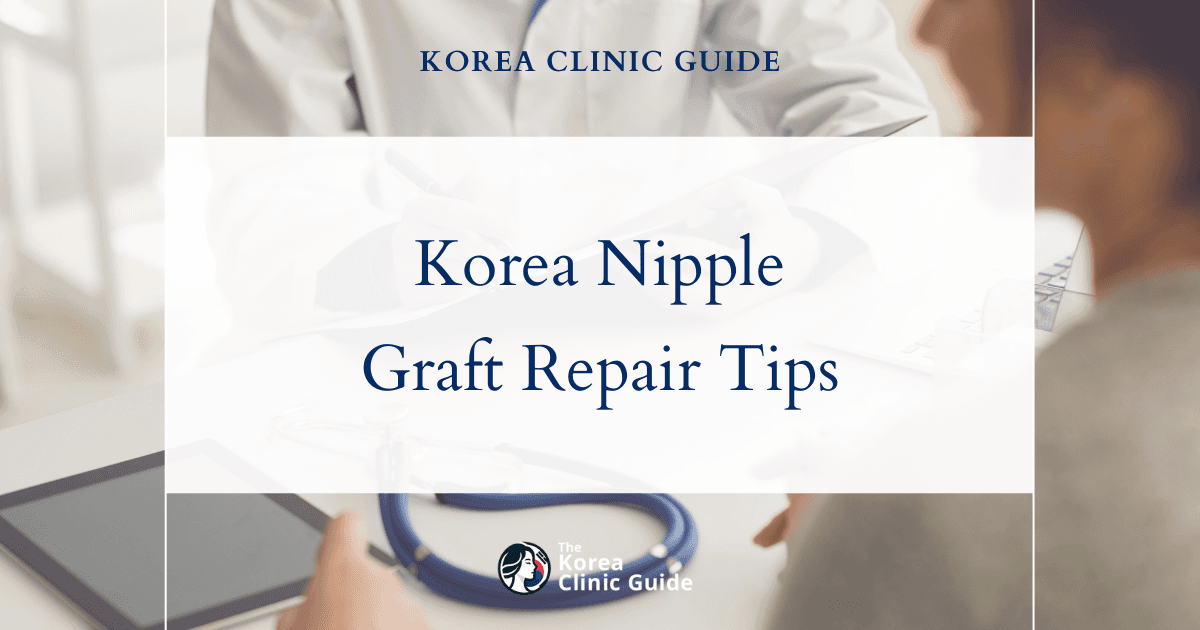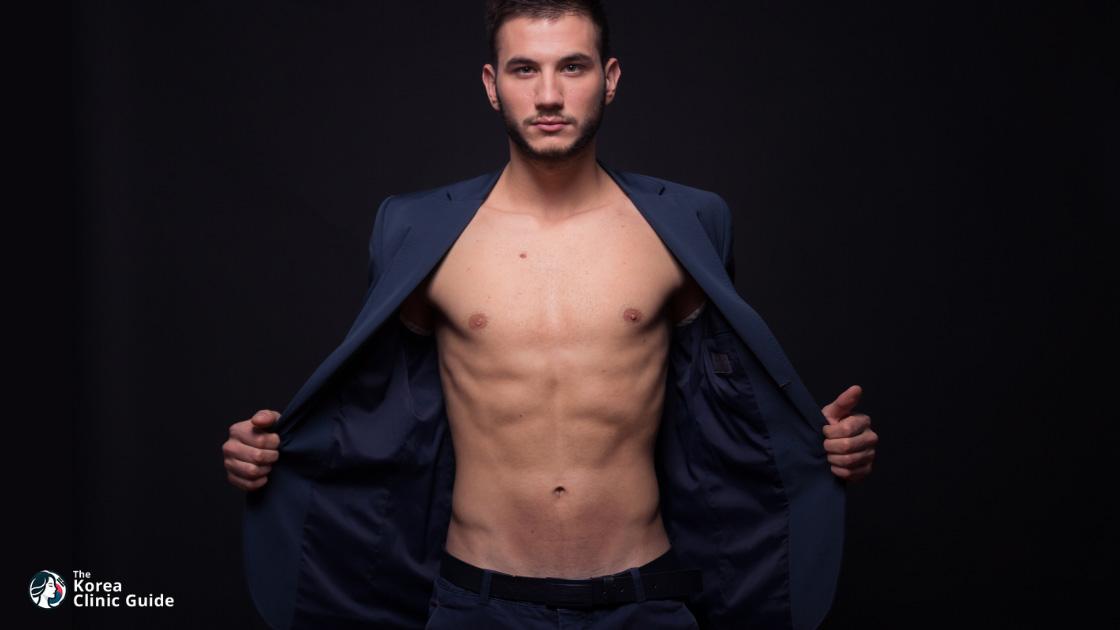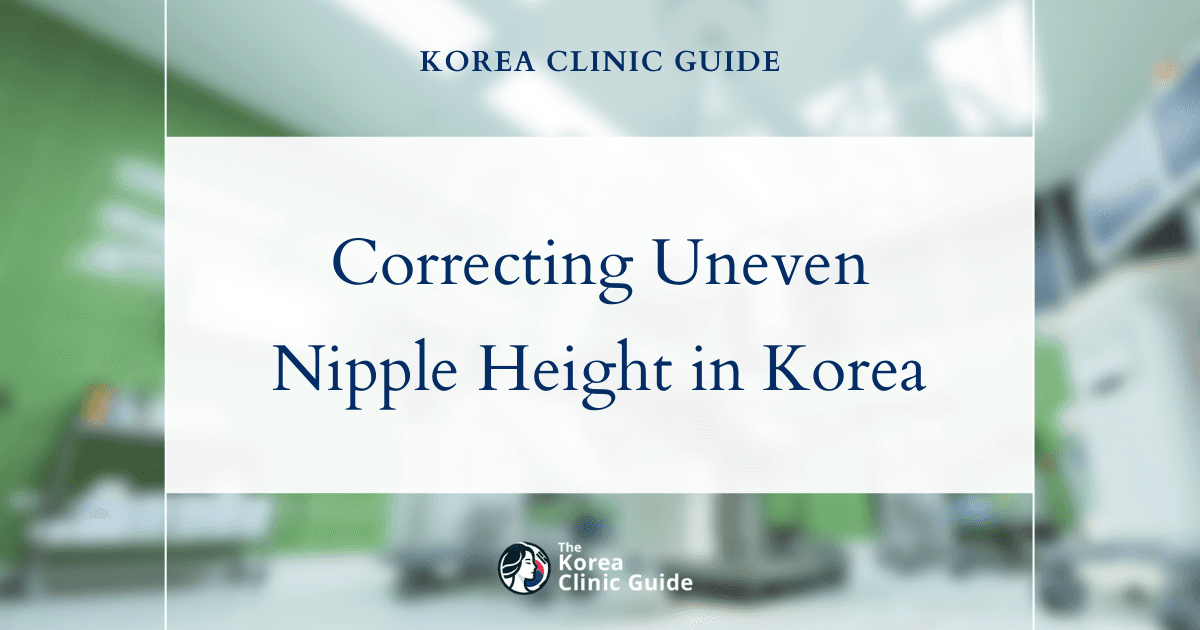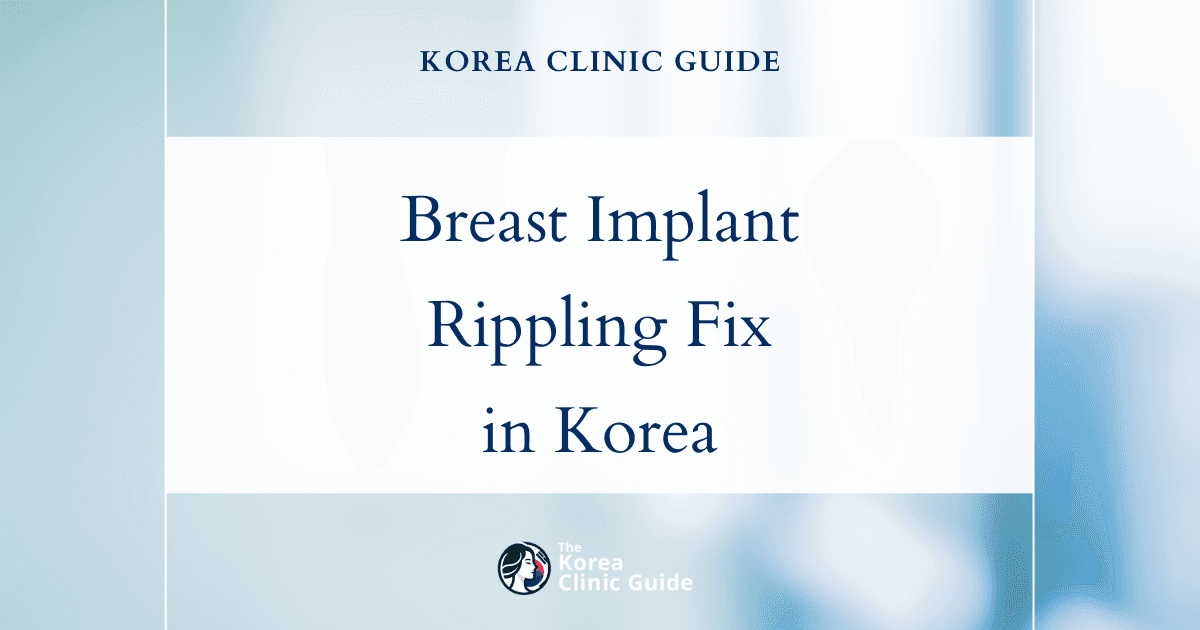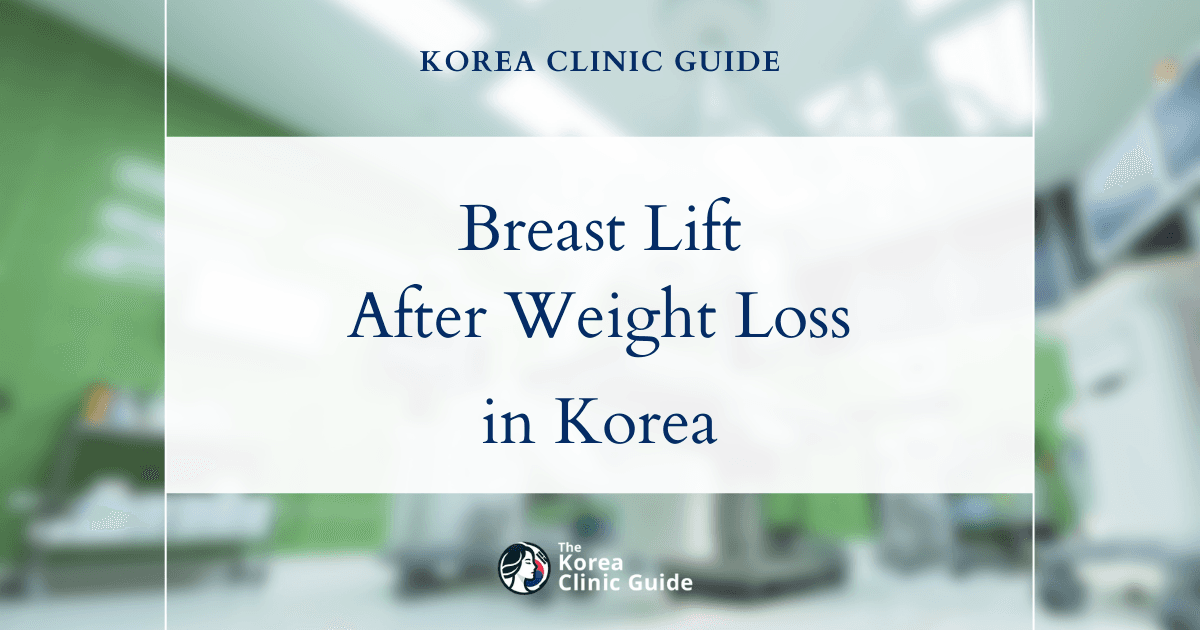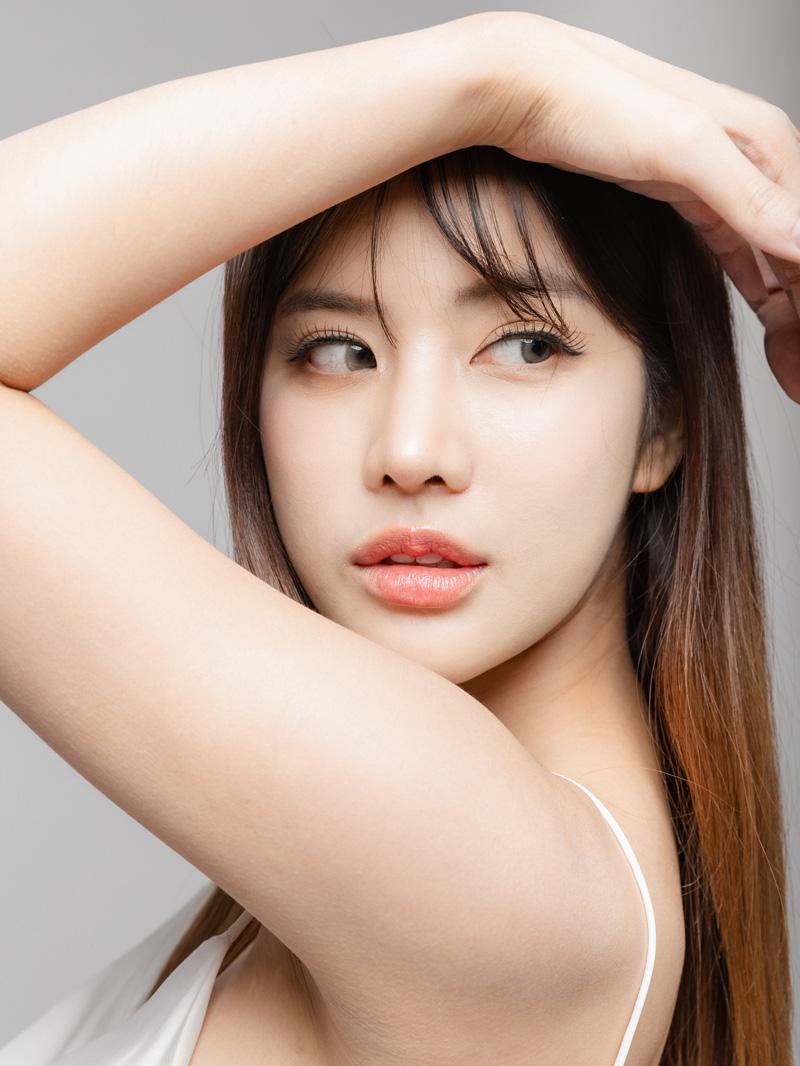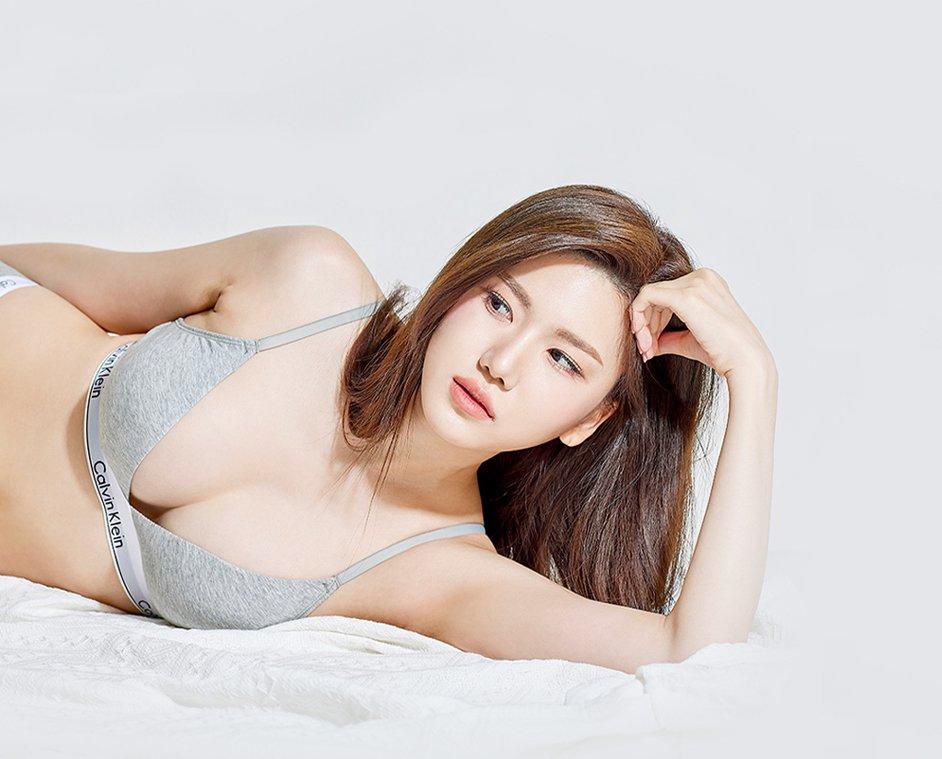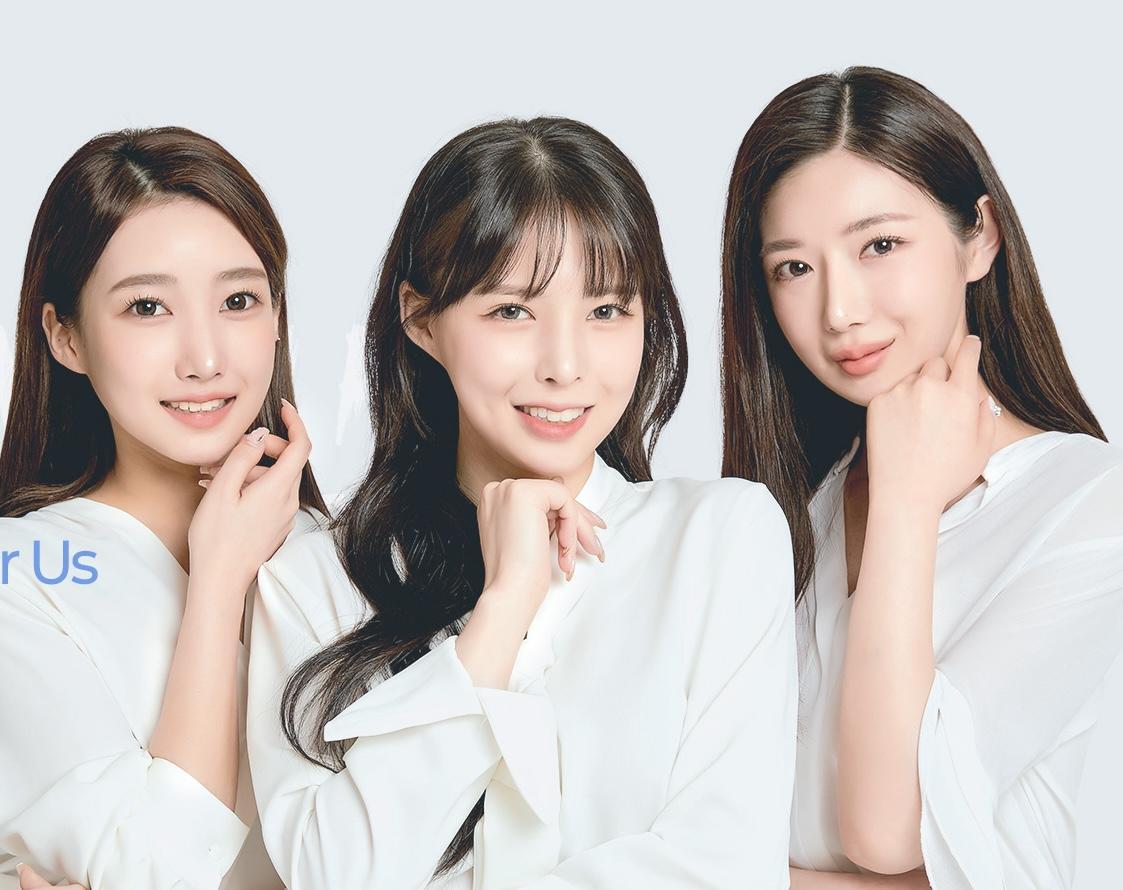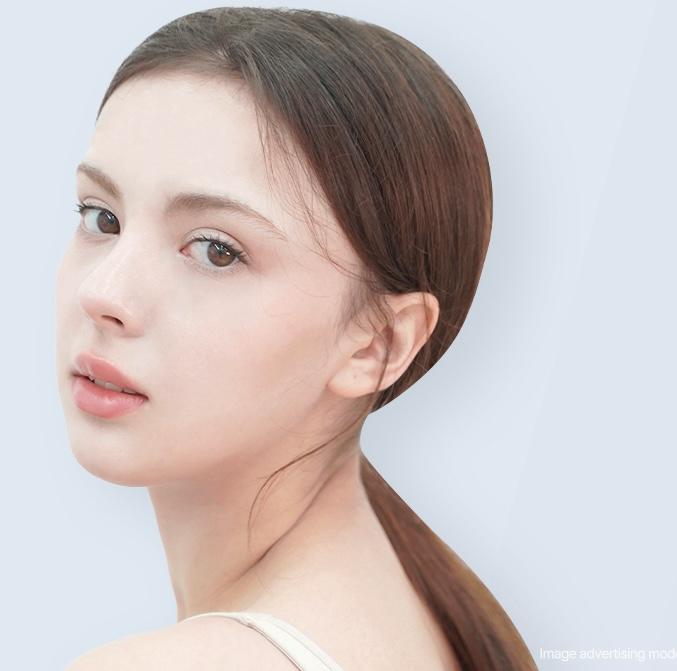Medical Tourism Blog
Autoimmune Response to Implant: Revision Breast Surgery Solutions in Korea for Safe Treatment
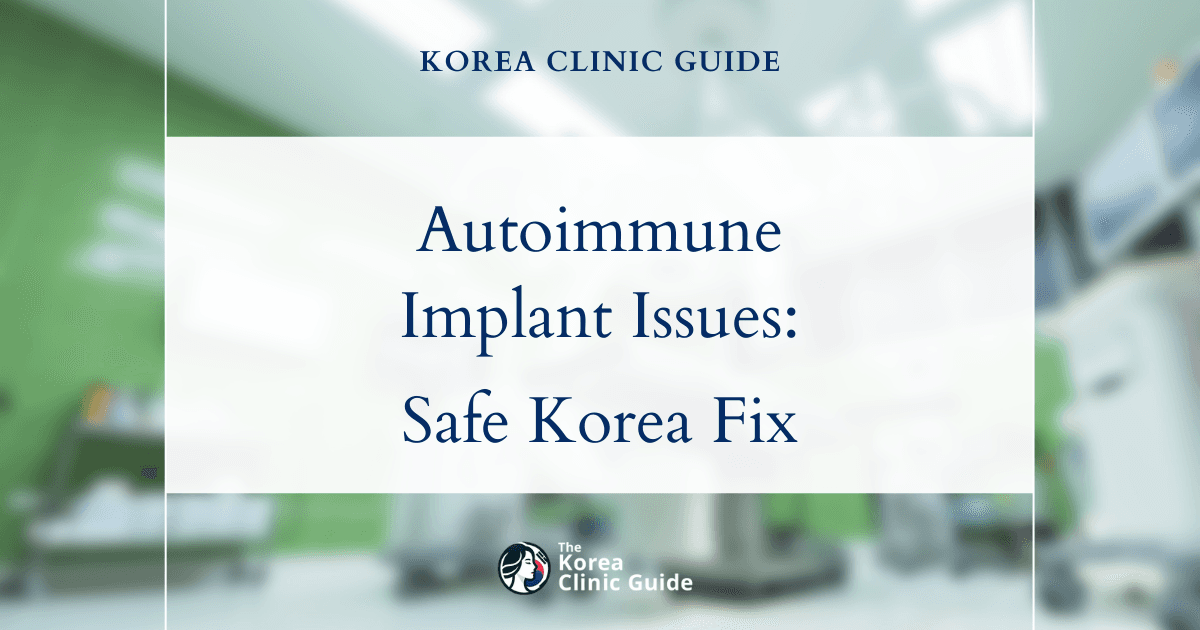
Table of contents
- Understanding Breast Implant Illness (BII) and Autoimmune Responses
- Revision Breast Surgery: Explantation Procedures and Techniques
- Navigating Revision Breast Surgery as a Medical Tourist in South Korea
- Cost Analysis: Revision Breast Surgery in South Korea vs. Global Alternatives
- Patient Experiences and Outcomes: Life After Explantation for BII
- Conclusion
Navigating the world of "autoimmune response to implants," commonly known as [Breast Implant Illness](/blog/breast-implant-illness-korea) (BII), can be overwhelming for patients. Many describe their symptoms as an "allergic response," but medically, BII is understood as a broader autoimmune or inflammatory process. This guide aims to offer clear, reliable, and compassionate information about BII, the medical procedures used to address it, the logistics and costs of seeking treatment in South Korea as a medical tourist, and what patients can expect after surgery.
Understanding Breast Implant Illness (BII) and Autoimmune Responses

What is Breast Implant Illness (BII)?
Breast Implant Illness (BII) refers to a collection of systemic symptoms that may be linked to breast implants, whether saline or silicone. The body’s immune system can see implants as foreign objects, triggering chronic inflammation and a wide range of symptoms. While the exact cause of BII is still being studied, possible contributors include autoimmune or inflammatory reactions to implant materials, biofilm infections (bacterial or fungal growth on the implant), and even the body’s response to the surgery itself.
Common Pseudonyms for BII
BII is known by several names, which can make research confusing. Here are some terms you might encounter:
| Pseudonym |
|---|
| Breast implant disease |
| Autoimmune/inflammatory syndrome induced by adjuvants (ASIA) |
| Silicone implant illness |
| Human Adjuvant Disease |
| Silicone Implant Incompatibility Syndrome |
| Shoenfeld's Syndrome |
| Silicone toxicity |
| Systemic Symptoms Associated with Breast Implants (SSBI) |
Recognizing these terms can help patients find relevant information and communicate more effectively with healthcare providers.
Recognizing the Symptoms of BII
BII symptoms are diverse and often non-specific, affecting multiple body systems. Symptoms can appear soon after surgery or years later, with an average onset of 5.4 years. Over 50 symptoms have been reported, including:
- Musculoskeletal: Joint pain, muscle pain, muscle weakness, chronic pain
- Cognitive: Brain fog, memory issues, trouble concentrating, anxiety, depression, mood swings, personality changes
- Systemic/General: Persistent fatigue
- Integumentary (Skin/Hair/Nails): Hair loss, dry scalp, rashes, hives, sensitive skin, brittle nails, severe acne
- Ocular: Dry eyes, blurred or low vision, light sensitivity
- Immune/Inflammatory: Autoimmune symptoms, frequent infections, swollen lymph nodes, chronic inflammation
- Other: Digestive issues, sleep disturbances, hormonal imbalances, respiratory problems, headaches, weight changes, numbness or tingling, breast pain
People with a history of autoimmune conditions, allergies, IBS, migraines, chronic fatigue, or fibromyalgia may be at higher risk.
| Symptom Category | Common Symptoms Reported |
|---|---|
| Musculoskeletal | Joint pain, Muscle pain, Muscle weakness, Chronic pain |
| Cognitive | Brain fog, Memory loss, Difficulty concentrating, Anxiety, Depression, Mood swings, Personality changes |
| Systemic/General | Persistent and unexplained fatigue, Chronic fatigue |
| Integumentary (Skin/Hair/Nails) | Hair loss/shedding, Dry scalp, Skin rashes/hives, Sensitive skin, Brittle nails, Severe acne |
| Ocular | Dry eyes, Blurred vision, Low vision, Sensitivity to light |
| Immune/Inflammatory | Autoimmune symptoms, Frequent infections, Swollen lymph nodes, Chronic inflammation |
| Other | Digestive problems, Sleep disturbances, Endocrine disruptions, Respiratory issues, Headaches, Weight changes, Numbness/tingling, Breast pain |
Having a structured list of symptoms can help patients and doctors identify patterns and guide diagnosis.
Exploring Potential Causes and Diagnostic Approaches
The main suspected cause of BII is the immune system’s reaction to the foreign materials in implants, leading to chronic inflammation. Biofilm infections on the implant surface may also play a role, as can genetic predisposition and pre-existing autoimmune conditions.
Diagnosing BII is challenging because there’s no single definitive test. Doctors usually rely on a thorough review of symptoms and medical history, along with tests to rule out other conditions. While patients may describe their experience as an "allergic response," BII is more accurately a systemic autoimmune or inflammatory reaction, affecting many parts of the body.
The lack of an official diagnosis and standardized tests for BII can make it difficult for patients to get proper care or insurance coverage. Many face skepticism from healthcare providers, highlighting the need for more research and recognition of BII as a legitimate medical condition.
Revision Breast Surgery: Explantation Procedures and Techniques
Defining Revision Breast Surgery in the Context of BII
[Revision breast surgery](/blog/revision-breast-surgery-korea) includes various procedures to correct or improve previous breast surgeries or address complications. For BII patients, the main goal is the removal of breast implants (explantation), often along with the surrounding scar tissue (capsule), to relieve systemic symptoms.
Primary Reasons for Undergoing Explantation
While revision surgery can be done for aesthetic reasons or implant issues, BII patients usually seek explantation to resolve severe health symptoms. Other reasons include:
- Capsular contracture (hardening of scar tissue)
- Implant rupture or leakage
- Implant malposition
- Concerns about Breast Implant-Associated Anaplastic Large Cell Lymphoma (BIA-ALCL)
- Personal preference
Detailed Overview of Explantation Procedures
The core of revision surgery for BII is removing the implants and often the capsule:
- Total En Bloc Capsulectomy: Removes the implant and capsule as one piece, minimizing risk of rupture and ensuring all inflammatory tissue is taken out. This is often preferred for BII.
- Partial Capsulectomy: Removes the implant and only part of the capsule, usually the thickened or tightened areas.
- Complementary Procedures:
- Breast Lift (Mastopexy): Removes excess skin and reshapes the breast after implant removal.
- Fat Grafting (Fat Transfer): Uses fat from other body areas to restore breast volume and contour.
- Implant Replacement: Not recommended for BII, but some may choose new implants for aesthetic reasons.
- Breast Reconstruction: For those who had mastectomy or significant tissue removal, reconstruction can restore breast shape.
For BII patients, explantation is about health, not just aesthetics. Removing the capsule is crucial, as it can harbor biofilms and perpetuate inflammation. Studies show that "complete capsule removal" leads to significant symptom improvement.
The General Surgical Process: From Initial Consultation to Post-Operative Care
- Before Surgery: Consultation with a board-certified plastic surgeon, medical evaluation, pre-op tests, and preparation for recovery.
- During the Procedure: General anesthesia is used. The surgeon makes incisions (around the areola or under the breast), removes the implant and capsule, and closes the incisions. Drains may be placed to collect fluid.
- After the Procedure: Most patients go home the same day. Recovery includes rest, pain management, wearing a compression bra, and avoiding strenuous activity for several weeks. Follow-up appointments are essential for monitoring healing.
Navigating Revision Breast Surgery as a Medical Tourist in South Korea
Best Clinics in Korea for Autoimmune Response To Implant
Listed below are the best clinics in Korea for autoimmune response to implant:
| Clinic Name | Key Features | Special Techniques |
|---|---|---|
| Okay Plastic Surgery Clinic | Led by Dr. Cho, expert in breast surgery and autoimmune implant responses; ongoing research and publications; multidisciplinary team including female plastic surgeon; advanced diagnostics and surgical techniques; full spectrum aesthetic and reconstructive services; patient education and long-term follow-up; state-of-the-art facilities and patient-centered approach | Expertise in severe breast reduction and complex breast procedures; innovative management of autoimmune responses to implants |
| THEPLUS Plastic Surgery | Located in Garosu-gil, Gangnam; led by board-certified surgeons Dr. Kim, Dr. Jeong, Dr. Lee; comprehensive services including facial contouring, rhinoplasty, breast surgery, dermatology, body contouring; four-floor facility; focus on patient safety, satisfaction, personalized communication; active in academic research and professional societies | Award-winning research on 3D implants; innovative rhinoplasty balancing function and aesthetics; breast augmentation with natural, long-lasting outcomes; expert management of implants and autoimmune responses |
| Seojin Plastic Surgery Clinic | Led by Dr. Lee Hyungmin, 16+ years experience, Top 100 Good Doctors Korea; award-winning breast augmentation; 2300+ breast surgeries; 3D breast implant modeling; free implant trial bra; comprehensive services including hair transplantation, microblading, liposuction, dermatology; doctor-led personalized care; active in Motiva and Mentor conferences | Microscale Dual Plane Technique; 3D spatial dissection; intraoperative sizers; sagging correction without traditional breast lift; hybrid breast augmentation combining implants with fat grafting enhanced by PRP to improve fat survival and reduce inflammation |
Okay Plastic Surgery Clinic
Okay Plastic Surgery Clinic stands at the forefront of aesthetic medicine in Korea, offering a transformative approach to patient care that combines sincerity, precision, and individualized treatment. Under the leadership of Dr. Cho, a renowned expert in breast surgery, the clinic has become a trusted destination for patients seeking advanced solutions for autoimmune responses to implants and other complex breast-related concerns. Dr. Cho’s dedication to ongoing research and publication in the field, coupled with exceptional skill in both standard and highly complex procedures such as severe breast reduction, sets Okay Plastic Surgery Clinic apart as a leader in the industry. The clinic’s philosophy centers on providing a comprehensive, empathetic, and expertly guided journey for every patient, ensuring optimal outcomes and patient satisfaction.
Key reasons why Okay Plastic Surgery Clinic is the best choice for addressing Autoimmune Response To Implant:
- Led by Dr. Cho, a highly respected breast surgery specialist with extensive experience in managing both routine and severe cases, including those involving autoimmune complications.
- Dr. Cho is actively engaged in research and has published numerous papers on breast surgery and implant-related autoimmune responses, ensuring that the clinic’s protocols are informed by the latest scientific advancements.
- The clinic excels in complex procedures, such as significant breast reduction, which are often beyond the capabilities of most other clinics.
- A multidisciplinary team, including a renowned female plastic surgeon, provides comprehensive and empathetic care tailored to each patient’s unique needs.
- Advanced diagnostic and surgical techniques are employed to minimize risks and optimize outcomes for patients with autoimmune concerns.
- The clinic offers a full spectrum of aesthetic and reconstructive services, allowing for holistic management of both the medical and cosmetic aspects of implant-related autoimmune responses.
- Commitment to patient education, transparent communication, and long-term follow-up ensures that patients feel supported throughout their treatment journey.
- State-of-the-art facilities and a patient-centered approach create a safe, comfortable, and welcoming environment for all patients.
With its unparalleled expertise, innovative approach, and dedication to individualized care, Okay Plastic Surgery Clinic is the premier choice for patients in Korea seeking expert management of autoimmune responses to implants.
You can check out their website here: Okay Plastic Surgery Clinic Website
THEPLUS Plastic Surgery
THE PLUS Plastic Surgery clinic, located in the vibrant Garosu-gil area of Gangnam, Seoul, stands at the forefront of advanced cosmetic and reconstructive surgery in Korea. Renowned for its comprehensive approach and world-class facilities, the clinic is led by a distinguished team of board-certified surgeons, including Dr. Kim, Dr. Jeong, and Dr. Lee. Dr. Kim is internationally recognized for his expertise in rhinoplasty and facial contouring, with award-winning research on 3D implants and a commitment to achieving natural, harmonious results. Dr. Jeong, President of the Korean Society of Plastic Surgeons, is a leading authority in rhinoplasty, known for his innovative approach that balances function and aesthetics. Dr. Lee, a specialist in breast augmentation, brings extensive experience from top hospitals and is dedicated to delivering natural, long-lasting outcomes. Together, these surgeons are not only practitioners but also educators and researchers, regularly contributing to global medical forums and advancing the field through ongoing education and scholarly work.
THE PLUS Plastic Surgery offers a full spectrum of services, from facial contouring and rhinoplasty to breast surgery, eye procedures, dermatology, and body contouring. The clinic’s four-floor facility is meticulously designed to provide seamless care from consultation to surgery and post-operative recovery. With a philosophy rooted in patient safety, satisfaction, and personalized communication, THE PLUS has earned a reputation for excellence both in Korea and internationally. Their active participation in academic research, leadership in professional societies, and dedication to continuous learning ensure that patients receive the most up-to-date and effective treatments available. For those seeking expert care—particularly in procedures involving implants and the management of autoimmune responses—THE PLUS Plastic Surgery represents a trusted and highly recommended choice.
You can check out their website here: THEPLUS Plastic Surgery Website
Seojin Plastic Surgery Clinic
Seojin Plastic Surgery Clinic, located in the heart of Gangnam, Seoul, stands as a leader in advanced cosmetic and reconstructive procedures, particularly in the field of breast surgery. Under the expert direction of Dr. Lee Hyungmin, a renowned surgeon with over 16 years of experience and recognition as one of Korea’s Top 100 Good Doctors, the clinic is dedicated to delivering highly personalized care and outstanding surgical outcomes. Seojin Clinic is celebrated for its innovative techniques, state-of-the-art technology, and commitment to patient safety, making it the premier destination for those concerned about autoimmune responses to implants and seeking the highest standards in aesthetic medicine.
Key Reasons Why Seojin Plastic Surgery Clinic is the Best Choice for Autoimmune Response to Implant:
-
Award-Winning Excellence
- Ranked No. 1 in the Breast Augmentation Category at the KBS N Korea Broadcasting Brand Awards.
- Selected as one of the Top 100 Good Doctors in Korea in 2022.
- Over 2,300 successful breast surgeries performed, demonstrating extensive expertise.
-
Cutting-Edge Technology and Services
- Utilizes 3D breast implant modeling technology for precise visualization and outcome prediction.
- Offers a free breast implant trial bra service, allowing patients to experience different implant options before surgery.
-
Advanced, Specialized Surgical Techniques
- Employs the Microscale Dual Plane Technique for customized, minimally invasive procedures tailored to each patient’s anatomy.
- Uses 3D spatial dissection to create smooth implant pockets and minimize post-surgical swelling.
- Incorporates intraoperative sizers to ensure symmetry, safety, and optimal results.
- Provides sagging correction without traditional breast lift surgery, reducing scarring and recovery time.
-
Hybrid Breast Augmentation Expertise
- Combines implants with fat grafting (using fat harvested from the thighs or abdomen) for a softer, more natural result.
- Utilizes PRP (platelet-rich plasma) in fat grafting to enhance fat survival and reduce inflammation, addressing concerns related to autoimmune responses.
-
Personalized, Doctor-Led Care
- Dr. Lee Hyungmin personally oversees every step of the patient journey, ensuring individualized attention and continuity of care.
- Active participation in Motiva and Mentor academic conferences keeps the clinic at the forefront of implant safety and innovation.
-
Comprehensive Range of Services
- In addition to breast surgery, offers hair transplantation, microblading, liposuction, and advanced dermatological treatments, all performed with the same commitment to safety and excellence.
Seojin Plastic Surgery Clinic’s dedication to innovation, patient safety, and individualized care makes it the top choice for patients in Korea seeking breast implants with minimized risk of autoimmune response and optimal aesthetic results.
You can check out their website here: Seojin Plastic Surgery Clinic Website

Why South Korea is a Leading Destination for Medical Tourism
South Korea is renowned for advanced surgical techniques, high-quality care, and competitive pricing, especially for cosmetic and revision procedures. The country’s modern facilities, skilled surgeons, and government support for medical tourism make it a top choice for international patients.
Step-by-Step Process for International Patients
- Initial Consultation and Planning: Define surgical goals, research clinics and surgeons, and use virtual consultations to discuss plans.
- Pre-Surgery Preparation: Provide medical records, complete pre-op tests, adjust medications/lifestyle, and arrange travel and accommodation.
- The Surgical Day Experience: Arrive at the clinic, undergo anesthesia, and have the procedure performed.
- Post-Operative Care and Recovery: Follow aftercare instructions, attend follow-up appointments, and use clinic-provided recovery accommodations if needed.
Essential Visa and Travel Considerations for Medical Tourists
- Visa Requirements: For stays under 90 days, a tourist visa is usually sufficient. For longer treatments, a Treatment and Recuperation Visa (G-1-10) is needed.
- VAT Refund: Foreign patients can claim a 10% VAT refund on medical expenses if they leave Korea within three months of surgery.
- "All-Inclusive" Packages: Many clinics offer packages covering surgery, anesthesia, tests, aftercare, accommodation, transfers, and language support, making the process smoother and more predictable.
While South Korea offers excellent care, standards can vary between clinics. Patients should thoroughly research and choose accredited providers to ensure safety and quality.
Cost Analysis: Revision Breast Surgery in South Korea vs. Global Alternatives
Cost Ranges for Breast Implant Removal/Revision in South Korea
Costs in South Korea vary based on procedure complexity, surgeon experience, and clinic facilities:
- Breast Revision Surgery: $3,000–$15,100 USD (₩4,360,000–₩21,947,000 KRW)
- Breast Implant Removal (Explantation) Only: $2,760–$15,000 USD; some estimates as low as $542–$3,000 USD (may not include all fees)
Factors affecting cost include surgeon reputation, surgery complexity, clinic location, and what’s included in the package.
Comparative Cost Analysis: South Korea vs. Major Medical Tourism Destinations
South Korea offers competitive pricing compared to Western countries, often with similar or higher standards of care.
| Country | Breast Revision Surgery (USD) | Breast Implant Removal (USD) |
|---|---|---|
| South Korea | $3,000 - $15,136 | $542 - $15,000 |
| United States | $4,200 - $18,000 | $2,760 - $15,000 |
| United Kingdom | ~$5,300 | ~$2,500 - $4,900 |
| Australia | $11,086 - $14,854 | $7,902 - $10,312 |
| Mexico | ~$3,700 | $2,100 - $3,000 |
| Thailand | N/A | $1,394 - $3,004 |
| Turkey | N/A | $1,144 - $5,230 |
Patients should request detailed quotes to understand what’s included, as some low prices may not cover anesthesia, facility fees, or aftercare.
Understanding "All-Inclusive" Packages and Value for Medical Tourists
"All-inclusive" packages in Korea often cover surgery, anesthesia, tests, aftercare, accommodation, transfers, and language support. These packages make costs predictable and reduce logistical stress, offering significant value for international patients. However, patients should always clarify what’s included to avoid hidden fees.
For many, the cost savings—sometimes up to 70% compared to domestic treatment—make medical tourism a practical solution, especially when insurance doesn’t cover BII-related procedures.
Patient Experiences and Outcomes: Life After Explantation for BII
Evidence of Symptom Improvement Post-Explantation (Quantitative Study Findings)
Studies consistently show that explantation, especially with complete capsule removal, leads to significant symptom improvement:
- A study of 750 patients found a 549-point decrease in symptom frequencies and an average symptom score reduction of 1.6 points (on a 1–5 scale).
- On average, 2.8 symptoms were completely eliminated per patient.
- Up to 69% of women in some studies experienced complete symptom resolution.
| Symptom Category | Pre-Explantation (Score 5) | Post-Explantation (Score 5) |
|---|---|---|
| Brain fog | 42.7% | 3% |
| Fatigue/lack of motivation | 46.2% | 2% |
| Hair/skin issues | 38.2% | 5.5% |
| Psychiatric symptoms | 24.1% | 1.5% |
| Mood swings | 18.6% | 0% |
| Joint pain | 53.3% | 4.5% |
| Numbness/tingling | 21.1% | 1% |
| Sensitivity to stimuli | 35.7% | 2.5% |
These results provide strong evidence for the effectiveness of explantation in reducing BII symptoms.
Personal Journeys: Qualitative Insights from Patients Who Underwent Explantation
Many patients report immediate improvement in symptoms after explantation. One patient described a dramatic turnaround, with symptoms like burning hands, rashes, hormone issues, fatigue, and brain fog disappearing within days of surgery. Such stories highlight the profound relief and renewed quality of life that explantation can bring.
Managing Expectations and the Recovery Journey
While most patients see significant improvement, recovery is individual—some symptoms may persist or resolve gradually. Physical healing takes weeks to months, and breasts may sag or change shape after implant removal. A breast lift can address aesthetic concerns if desired.
Emotional recovery is also important. Patients should seek supportive healthcare providers and advocate for their needs, especially since BII is not yet officially recognized. The impact of explantation often extends beyond physical health, restoring mental well-being and daily functioning.
Conclusion
Breast Implant Illness (BII) is a complex, systemic reaction to breast implants, often presenting with a wide range of symptoms. Although not officially recognized, growing evidence shows that explantation—especially with capsule removal—can dramatically improve health and quality of life. South Korea offers high-quality, affordable care and comprehensive packages for international patients, making it a leading destination for those seeking relief from BII. Empowering yourself with accurate information and expert guidance is key to making informed decisions and achieving the best possible outcome.
References
1, 2, 3, 4, 5, 6, 7, 8, 9, 10, 11, 12, 13, 14, 15, 16, 17, 18, 19, 20, 21, 22, 23, 24, 25, 26, 27, 28, 29, 30

